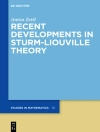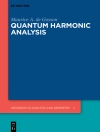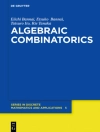This volume covers the latest methodologies for using multimodal data fusion and analytics across several applications. The curated content presents recent developments and challenges in multimodal data analytics and shines a light on a pathway toward new research developments. Chapters are composed by eminent researchers and practitioners who present their research results and ideas based on their expertise. As data collection instruments have improved in quality and quantity for many applications, there has been an unprecedented increase in the availability of data from multiple sources, known as modalities. Modalities express a large degree of heterogeneity in their form, scale, resolution, and accuracy. Determining how to optimally combine the data for prediction and characterization is becoming increasingly important. Several research studies have investigated integrating multimodality data and discussed the challenges and limitations of multimodal data fusion. This volume provides a topical overview of various methods in multimodal data fusion for industrial engineering and operations research applications, such as manufacturing and healthcare.
Advancements in sensing technologies and the shift toward the Internet of Things (Io T) has transformed and will continue to transform data analytics by producing new requirements and more complex forms of data. The abundance of data creates an unprecedented opportunity to design more efficient systems and make near-optimal operational decisions. On the other hand, the structural complexity and heterogeneity of the generated data pose a significant challenge to extracting useful features and patterns for making use of the data and facilitating decision-making. Therefore, continual research is needed to develop new statistical and analytical methodologies that overcome these data challenges and turn them into opportunities.
قائمة المحتويات
Chapter 1: Introduction to multimodal and tensor data analytics.- Chapter 2: Functional Methods for Multimodal Data Analysis.- Chapter 3: Advanced Data Analytical Techniques for Profile Monitoring.- Chapter 4: Statistical process monitoring methods based on functional data analysis.- Chapter 5: Tensor and multimodal data analysis.- Chapter 6: Tensor Data Analytics in Advanced Manufacturing Processes.- Chapter 7: Spatiotemporal Data Analysis – A Review of Techniques, Applications, and Emerging Challenges.- Chapter 8: Offshore Wind Energy Prediction Using Machine Learning with Multi-Resolution Inputs.- Chapter 9: Sparse Decomposition Methods for Spatio-temporal Anomaly Detection.- Chapter 10: Multimodal Deep Learning.- Chapter 11: Multimodal Deep Learning for Manufacturing Systems: Recent Progress and Future Trends.- Chapter 12: Synergy of Engineering and Statistics: Multimodal data Fusion for Quality Improvement.- Chapter 13: Manufacturing data fusion: a case study with steel rollingprocesses.- Chapter 14: AI-enhanced Fault Detection using Multi-structured Data in Semiconductor Manufacturing.- Chapter 15: A Survey of Advances in Multimodal Federated Learning with Applications.- Chapter 16: Bayesian Multimodal Data Analytics: An introduction.- Chapter 17: Bayesian approach to multimodal data in human factors engineering.- Chapter 18: Bayesian Multimodal Models for Risk Analyses of Low-Probability High-Consequence Events.
عن المؤلف
Nathan Gaw is an Assistant Professor of Data Science in the Department of Operational Sciences at Air Force Institute of Technology, Wright-Patterson AFB, Ohio, USA. His research develops new statistical machine learning algorithms to optimally fuse high-dimensional, multi-modal data sources to support decision making in military, healthcare and remote sensing. He received his B.S.E. and M.S. in biomedical engineering and a Ph.D. in industrial engineering from Arizona State University (ASU), Tempe, AZ, USA, in 2013, 2014, and 2019, respectively. Dr. Gaw was a Postdoctoral Research Fellow at the ASU-Mayo Clinic Center for Innovative Imaging (AMCII), Tempe, AZ, USA, from 2019-2020, and a Postdoctoral Research Fellow in the School of Industrial and Systems Engineering (ISy E) at Georgia Institute of Technology, Atlanta, GA, USA, from 2020-2021. He has also served as chair of the INFORMS Data Mining Society, and a member of IISE and IEEE.
Panos M. Pardalos is Distinguished Professor Emeritus of Industrial and Systems Engineering at the University of Florida. Additionally, he is the Paul and Heidi Brown Preeminent Professor in Industrial & Systems Engineering. He is also an affiliated faculty member of the Computer and Information Science Department, the Hellenic Studies Center, and the Biomedical Engineering Program. He is also the Director of the Center for Applied Optimization. Dr. Pardalos is a world leading expert in global and combinatorial optimization. His recent research interests include network design problems, optimization in telecommunications, e-commerce, data mining, biomedical applications, and massive computing. He has co-authored and co-edited more than 30 books, as well as publishing more than 600 journal articles and conference proceedings. Prof. Pardalos is a Fellow of AAAS (American Association for the Advancement of Science), Fellow of American Institute for Medical and Biological Engineering (AIMBE), and EUROPT. He is a Distinguished International Professor by the Chinese Minister of Education; Honorary Professor of Anhui University of Sciences and Technology, China; Elizabeth Wood Dunlevie Honors Term Professor; Honorary Doctor, V.M. Glushkov Institute of Cybernetics of The National Academy of Sciences of Ukraine; Foreign Associate Member of Reial Academia de Doctors, Spain; and Advisory board member of the Centre for Optimisation and Its Applications, Cardiff University, UK. He is also the recipient of UF 2009 International Educator Award; Medal (in recognition of broad contributions in science and engineering) of the University of Catani, Italy; EURO Gold Medal (EGM); Honorary Doctor of Science Degree, Wilfrid Laurier University, Canada; Senior Fulbright Specialist Award; University of Florida Research Foundation Professorship; and IBM Achievement Award.
Mostafa Reisi Gahrooei is an Assistant Professor in the Department of Industrial and Systems Engineering at the University of Florida. His research interests focus on data-driven modelling and monitoring complex and distributed systems by developing efficient methodologies and algorithms for modelling high-dimensional and multimodal data. The applications of his work are in precision agriculture, manufacturing, healthcare, and transportation systems. He is a co-director of the Data Informatics for Systems Improvement and Design (DISIDE) lab. Dr. Reisi is a member of the Institute for Operations Research and the Management Sciences (INFORMS) and the Institute of Industrial and Systems Engineers (IISE).












